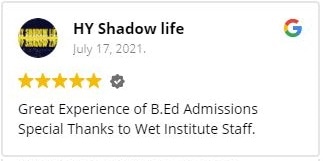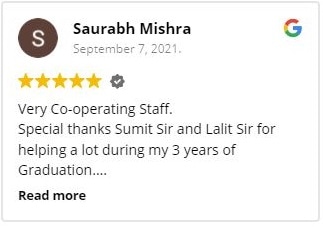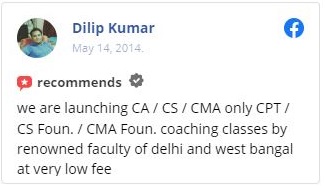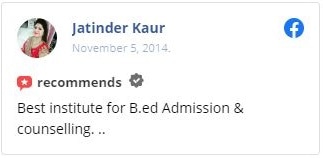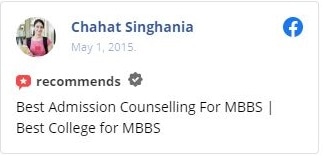BHMS
BHMS Admission from Top Colleges: Admission Process, Eligibility Criteria, Syllabus, Fees, Duration, Scope, and Career Opportunities
BHMS (Bachelor of Homeopathic Medicine and Surgery) Overview
BHMS, or Bachelor of Homeopathic Medicine and Surgery, is an undergraduate degree that focuses on homeopathy—a holistic healing system that emphasizes treating the individual as a whole rather than just addressing specific symptoms. Typically, this program spans five and a half years, which includes a one-year internship. Designed to equip students with both theoretical knowledge and practical skills, it provides a comprehensive education in homeopathic practices.
Moreover, the curriculum covers a range of subjects, including anatomy, physiology, pathology, pharmacology, and homeopathic philosophy. Students not only learn about the principles of homeopathy but also explore various treatment modalities and effective patient management strategies. Additionally, the program emphasizes the importance of research and evidence-based practice in homeopathy, ensuring that graduates are well-prepared for their careers.
Upon completing the BHMS program, graduates have numerous career options. For instance, they can practice as licensed homeopathic physicians, work in hospitals, or even establish their own clinics. Furthermore, opportunities for further studies in specialized areas such as homeopathic pharmacy, research, and academics are available, allowing graduates to deepen their expertise.
Given the growing interest in alternative medicine, hoameopathy has gained significant recognition worldwide. As a result, individuals seeking a career that aligns with natural healing principles increasingly seek out BHMS graduates for their holistic approach to healthcare.
BHMS (Bachelor of Homeopathic Medicine and Surgery): Eligibility Criteria
To pursue a BHMS degree, candidates must meet specific eligibility criteria. Below are the key requirements:
Educational Qualifications
First and foremost, candidates should have completed their 10+2 education from a recognized board. Additionally, a minimum of 50% aggregate marks in subjects such as Physics, Chemistry, and Biology is typically required. In some cases, institutions may also mandate English as a compulsory subject.
Age Limit
Furthermore, most colleges have a minimum age requirement of 17 years at the time of admission. Some institutions may specify an upper age limit, which is usually around 25 years.
Entrance Examinations
Moreover, admission to BHMS programs is often based on entrance exams conducted at the national or state level. Candidates may need to qualify in exams such as the NEET (National Eligibility and Entrance Test) or specific homeopathy entrance tests organized by various universities.
Health and Fitness
In addition, some institutions may require a medical fitness certificate to ensure that candidates are physically and mentally prepared for the rigorous training in homeopathy.
BHMS Entrance Exams
The candidate takes a variety of entrance examinations to qualify for admission to various universities/institutes. Some of the popular entrance examinations includes:
- NEET
- TS EAMCET
- AP EAMCET
- KEAM
- PU CET IPU CET
- BVP CET
BHMS Course Specialization
A candidate can also opt for specialization in the areas of interest. Some of the top specialization one can choose includes:
- Homeopathic Pharmacy
- Homoeopathic Paediatrics
- Homoeopathic Psychiatry
- Homoeopathic Skin Specialist
- Homoeopathic Infertility Specialist
BHMS course Duration
The Bachelor of Homeopathic Medicine and Surgery (BHMS) is an undergraduate program designed to equip students with comprehensive knowledge in homeopathy. Spanning a duration of 5.5 years, this degree is awarded to candidates upon successful completion of the program.
The course aims to refine students’ skills while introducing them to the principles and practices of the homeopathic system. Specifically, the 5.5-year program comprises 4.5 years of theoretical education followed by a one-year internship, providing valuable hands-on experience.
BHMS Course Scope and Duration
Duration
The BHMS (Bachelor of Homeopathic Medicine and Surgery) program typically lasts 5.5 years, comprising:
- 4.5 years of academic study that covers both theoretical and practical aspects of homeopathy.
- 1 year of mandatory internship where students gain hands-on experience in clinical settings.
Scope
The scope of BHMS is broad and continues to expand as interest in alternative medicine rises. Here are some key aspects:
Career Opportunities
Graduates have a range of career options, including:
- Homeopathic Physician: Practice as a licensed homeopath in private clinics, hospitals, or health centers.
- Research: Engage in clinical research to study the efficacy of homeopathic treatments.
- Academics: Pursue teaching positions in homeopathic colleges and institutions.
- Pharmaceuticals: Work in the manufacturing and development of homeopathic medicines.
Specializations
Moreover, graduates can further specialize in fields such as pediatrics, psychiatry, dermatology, or gynecology, which enhances their practice scope.
Public Health
There are also opportunities for involvement in community health programs, focusing on preventive care and holistic health solutions.
Regulatory Bodies
Graduates can work with government health departments, NGOs, and organizations that promote homeopathic medicine, contributing to policy and practice.
Integration with Conventional Medicine
Increasing acceptance of holistic approaches within conventional healthcare opens avenues for collaboration between homeopathy and allopathic practices.
BHMS Course Fees
The fees for the BHMS (Bachelor of Homeopathic Medicine and Surgery) program can vary significantly based on the institution, location, and whether it is a government or private college.
Typically, the fees for government colleges range from INR 20,000 to INR 1,00,000 per year. Consequently, the total course fees can amount to approximately INR 1,00,000 to INR 5,00,000 for the entire program.
Private Colleges
In contrast, private colleges generally have higher fees, ranging from INR 50,000 to INR 3,00,000 per year. As a result, total fees for the complete course can reach INR 2,50,000 to INR 15,00,000.
Additional Costs
Moreover, students should consider additional costs beyond tuition. Expenses for books, laboratory fees, uniforms, and other materials can add an extra INR 10,000 to INR 30,000 annually.
Scholarships and Financial Aid
Finally, it is important to note that some institutions offer scholarships or financial aid options based on merit or financial need. Such assistance can significantly help in reducing overall expenses.
The BHMS Course Curriculum
The BHMS (Bachelor of Homeopathic Medicine and Surgery) curriculum is meticulously designed to provide students with a comprehensive understanding of homeopathy, along with the essential skills needed for practice. Typically spanning five and a half years, the program includes a one-year internship. Here’s an overview of the course curriculum:
Year 1: Foundation Courses
- Anatomy: Study of human body structure.
- Physiology: Understanding bodily functions and processes.
- Biochemistry: Basics of biochemical processes in the body.
Year 2: Core Medical Sciences
- Pathology: Examination of diseases and their effects on the body.
- Microbiology: Insights into pathogens and infectious diseases.
- Pharmacology: Introduction to drugs and their effects, including homeopathic remedies.
Year 3: Homeopathic Principles
- Organon of Medicine: Exploration of homeopathic philosophy and principles.
- Homeopathic Materia Medica: Detailed study of homeopathic medicines and their applications.
- Research Methodology: An introduction to research techniques in homeopathy.
Year 4: Clinical Practice
- Practice of Medicine: Application of medical knowledge in clinical settings.
- Homeopathic Therapeutics: Treatment approaches for various diseases using homeopathy.
- Community Medicine: Focus on public health and preventive care.
Year 5: Advanced Topics and Clinical Rotations
- Clinical Medicine: In-depth study of clinical practices and patient management.
- Surgery: Basic surgical procedures relevant to homeopathic practice.
- Internship: Hands-on experience in hospitals and clinics, applying learned concepts.
BHMS Course Admission Process for 2026-27 in Top Universities
1. Eligibility Check
First, ensure you meet the eligibility criteria, which generally require a 10+2 qualification with a minimum percentage in Physics, Chemistry, and Biology.
2. Entrance Exams
Most universities require candidates to take entrance exams such as NEET (National Eligibility cum Entrance Test) or specific state-level/homeopathy entrance tests. It is crucial to prepare for these exams, as they often play a significant role in the admission process.
3. Application Process
Next, fill out the application forms for the universities of your choice, which can typically be done online. Be sure to submit necessary documents, including academic transcripts, entrance exam scores, and identification.
4. Counseling Process
After the entrance exam results are announced, universities usually conduct counseling sessions. Candidates must register for counseling, where they can select their preferred colleges based on their ranks and available seats.
5. Document Verification
During the counseling process, document verification will take place. Therefore, be prepared to submit original documents along with photocopies.
6. Admission Confirmation
Once you are allocated a college, it’s essential to confirm your admission by paying the required fees within a specified timeframe.
Top Universities for BHMS
Some of the top universities in India offering BHMS include:
- National Institute of Homeopathy, Kolkata
- Smt. Chandaben Homeopathic Medical College, Mumbai
- Dr. B.R. Ambedkar Open University, Hyderabad
- Bharati Vidyapeeth University, Pune
- Homeopathic Medical College, Kolkata
Tips for Successful Admission
- Start preparing early for entrance exams.
- Stay updated on the admission schedules of the universities.
- Gather all necessary documents in advance to avoid last-minute hassles.
- Finally, check the specific admission guidelines of each university, as they may have unique requirements.
Post Graduate Courses After BHMS Course
If you can to further pursue education post the completion of the BHMS course then, the following are the various postgraduate courses that one can go for:
- Master of Science (M.Sc.) Courses.
- Doctor of Medicine (M.D.) in homeopathy courses.
- Masters of Business Administration (MBA)
- Masters of Hospital Administration.
- Postgraduate Diploma course.
Job Prospects for BHMS Course
Some of the popular job prospects that one can explore after BHMS includes:
- Homoeopathic Doctor
- Public Health Specialist
- Surgeon
- Dietician
- Private Practitioner
- Pharmacist
- Paramedic
- Teacher/Lecturer
The employment areas to one can serve to post the completion of BHMS are as follow:
- Hospitals
- Medical Colleges
- Research Institutes
- Pharmacies
- Charitable Institutions
- Personal Clinics
- Nursing Homes



